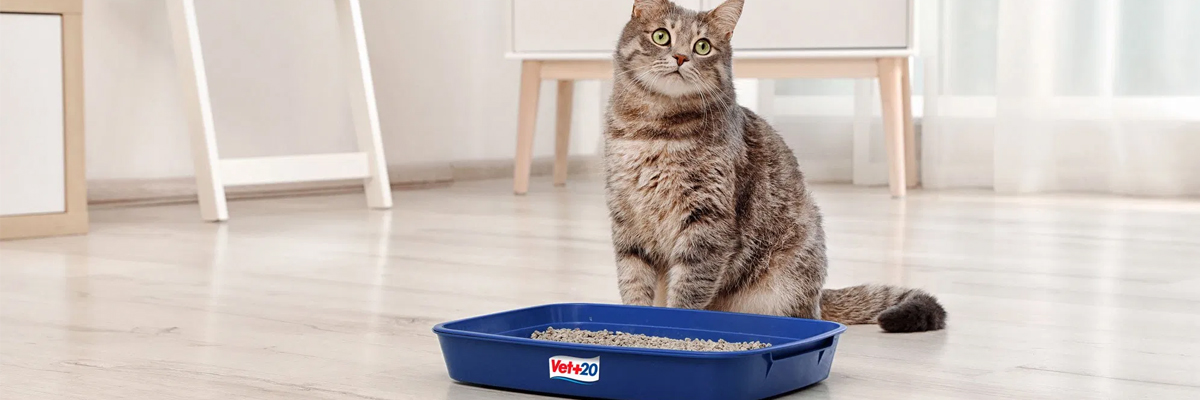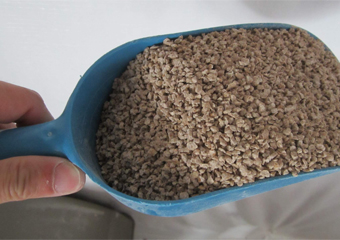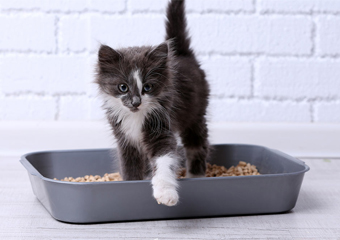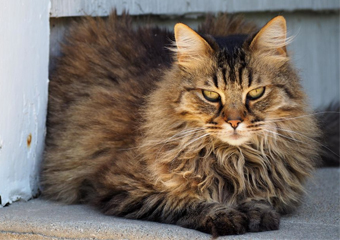Updated: 26/12/2020
What Is The Best Cat Litter
In earlier times, people would fill litter boxes with ash, sand, or sawdust. Thankfully, cat parents do not have to resort to these methods any longer. Now, there are unlimited litter options readily available in the market. Cat litter is probably the least glamorous thing about adopting or owning a cat. As with all pets, it is essential to ensure their comfort and happiness even above ours. Cat litter is one of those things that most cats cannot do without. Just like you would prefer buying the best cat foods, choosing the best cat litter is crucial for the wellbeing of your feline.
When it comes to deciding which is the best cat litter, it does get slightly tricky, since each feline has her own preference. For this reason, most litter manufacturers offer a variety of different types, sizes, scents, and shapes of litter. You should let the kitty decide which one suits best since some litters are known to give allergic reactions or respiratory issues to one type of cat while not to the other.
Let us look at the Different Types and Varieties of Cat Litter.
Traditional Cat Litter: Traditional cat litter is usually clay or silica gel-based. Cats with litter box aversion benefit from silica gel cat litter, which leads them to get housebroken faster than other cats. Many pet owners surrender their cats to shelters because the kitties refuse to use the litter box.
Clay litter has a natural herbal smell to it that appeals to cats. Since most felines prefer conducting their daily business out in the open, the clay litter acts as an incentive for them. Clay is dust free and is excellent for avoiding respiratory issues and allergies in sensitive cats.
Silica gel-based cat litter helps absorb urine and dehydrates faeces quickly. The crystal structure of the gel makes the litter box extremely dry and does not allow any moisture to remain in the litter box. The dehydration prevents Urinary Tract Infections and kidney problems in cats. This gel is also non-toxic and biodegradable since silica is sand-based.

Natural Cat Litter: Corn litter, wheat litter, and pine litter are the three commonly used natural litters.
Pine litter is low dust and clumps up easily into a soft mound so is easy to scoop out, and is biodegradable. Pine litter is excellent for cats with respiratory allergies and grain allergies.
Wheat litter is edible and can be safely used during litter box training. If ingested, it will not cause any serious issues. However, as food, avoid using too many grains and invest in the best automatic cat feeders to avoid diet-related concerns. In case your cats do bite into or swallow the litter, use the best cat toothbrushes available to clean out their mouth and protect their teeth and gums. Wheat litter eliminates odours and helps the urine clump up to form a soft mushy mound.
Corn litter is biodegradable and renewable and is a better option than traditional litter since it is sewer and septic safe and can be flushed down the toilet. If you have any dogs in the house, it is best to keep this litter out of their reach, since puppies have a habit of eating corn litter. This litter is dust-free so will not cause allergies or respiratory issues for your kittens. Like wheat, this litter is also used to train cats.
Outdoor Cat Litter: When allowing your cats to do their business outside, it is always best to use a clumping chemical-based litter that does not attract other small insects and animals. Cats have a tendency to roam around the property whenever they want, and their toilet schedules also fluctuate accordingly. To keep track of your feline, invest in the best cat trackers to help you formulate a viable plan for your cat.
Using clumping litter helps dehydrate the urine and faeces and leave the litter box dry. Clumping litter also eliminates odours. The only drawback is that it is not eco-friendly. If your cat has been house trained to use a natural or traditional litter indoors, and a clumping litter in the backyard or garden, you would find cleaning the waste relatively easy.
Always ensure that the litter is highly absorbent and does not leave urine stains in the box. Changing the litter once every two-three days and cleaning the litter box every few hours will keep your cat healthy and well trained. Clean litter boxes act as incentives for cats to use them often.
Related Reads
How To Stop Cat Litter From Smelling
Updated: 27/12/2020How To Stop Cat Litter From SmellingYour cats are the most adorable, cutest, and sweetest loves of your life. They purr and make you feel like the ruler of the world. However, they can also smell up the house with their super stinky poop odour. The...
How to Dispose of Cat Litter
Updated: 27/12/2020How to Dispose of Cat LitterWhen it comes to care and affection, all pet parents want to shower their felines with love. While all cat and dog parents know that loving and disciplining their pets is a lot like raising children, cleaning up the waste...
How Often To Change Cat Litter
Updated: 26/12/2020How Often To Change Cat LitterCat parents often face litter cleaning issues. Most cat and kitten parents wonder how often they should change the litter in the litterbox, and how much should be replaced. Since a litterbox is essential for felines to...
How To Litter Train A Cat
Updated: 10/12/2020How To Litter Train A CatLitter training for cats is crucial, especially for new cat parents. Making sure your feline is safe, secure, and comfortable in her new environment is essential for proper litter training. You could get the best cat litter...
What Do Cats Eat
Updated: 13/11/2020What Do Cats EatCats, like most dogs, enjoy a variety of different foods. Ideally, cats should be given a balanced nutritious diet containing fats, proteins, carbohydrates, vitamins, fibres, and minerals in the correct amounts. It is up to us to...
When can Kittens go Outside
Updated: 09/17/2020When can Kittens go OutsideKittens are naturally curious and will want to explore and go outside. The natural tendencies of cats and kittens urge them to wander around greenery and navigate through uncharted spaces. Kittens need to be cared for, and...






